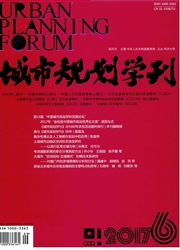

 中文摘要:
中文摘要:
“弹性”正在国际范围内深远地影响着区域空间的发展、重构与规划.今较为深入地探讨了国内外区域弹性的理论与实践研究进展:首先,概括了弹性及区域弹性的概念与空间构成,并从属性、过程和能力三要素的角度,分别简要分析了弹性城市与区域的空间特征;其次,对目前区域弹性主流的工程、经济、生态和社会四领域在定义、研究背景、研究视角、主要研究方向、主要指标及意义与未来发展等方面进行了梳理;然后,对应属性、过程和能力要素三方面,归纳了目前弹性评估的主要方法与技术;接着,从区域弹性的空间研究、规划与管理等方面对区域弹性的空间实践展开讨论;最后,对国内外主要研究成果进行总结概括,指出目前存在的不足之处,进而探讨未来研究的发展方向.
 英文摘要:
英文摘要:
The concept of resilience deeply affects the planning and development of a region. This paper reviews recent studies on theories and practice of region- al resilience. Firstly, we clarify the concepts of "resilience" and "regional resil- ience" and analyze the spatial implications of regional resilience. We also briefly analyze the spatial characteristics of resilient regions by looking into attribute, pro- cess, and capacity. Secondly, we summarize the definition, research background, re- search perspective, basic research areas, indicators and significance, and future prospect of regional resilience from engineering, economic, ecological and social perspectives. Thirdly, we summarize predominant methods and technologies to eval- uate regional resilience in terms of attribute, procedure, and capacity factors. It is followed by a deeper discussion on the practice of regional resilience in planning, and management. Lastly, the paper presents main research results worldwide with a discussion of their deficiency and the future research directions.
 同期刊论文项目
同期刊论文项目
 同项目期刊论文
同项目期刊论文
 期刊信息
期刊信息
